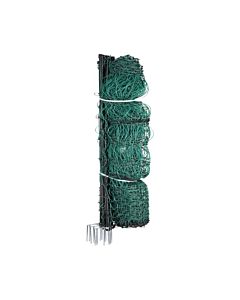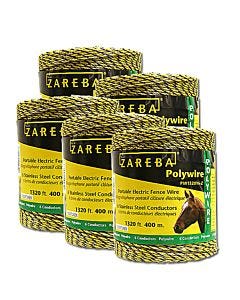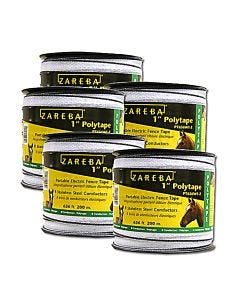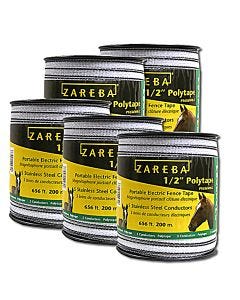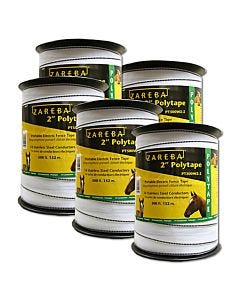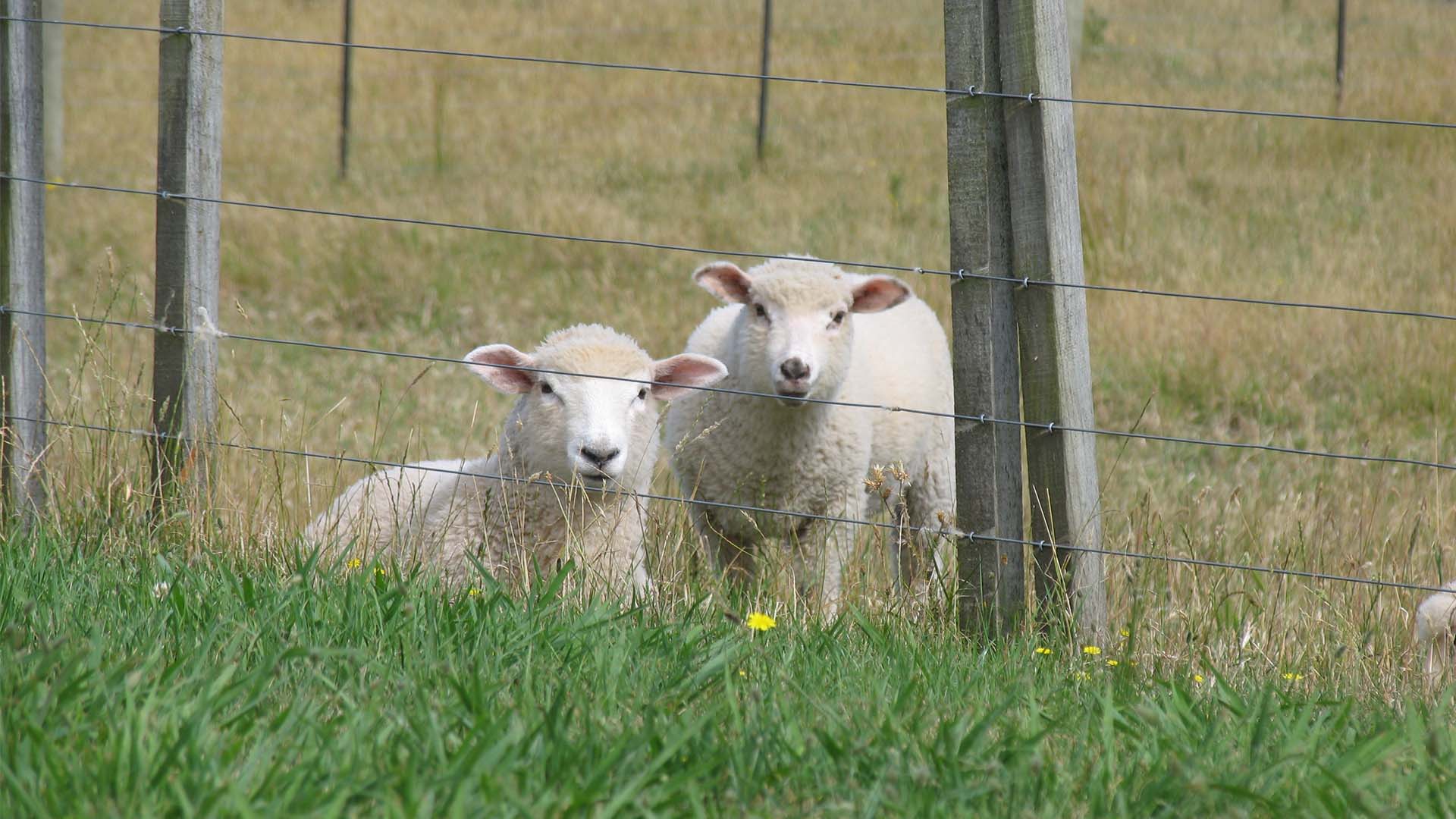
When it comes to pets, you may be thinking about the traditional dog or cat. But what about a pet pig? What should you know before getting a pet pig? Before you get any animal, you must do research to learn the proper care. Taking care of a pet pig is very different than other pets you may have had, so find out if a pig is a good fit for your home here.
Pet Pig 101
The most common kind of pet pigs are typically potbellied pigs. These are curious and intelligent creatures that require lots of attention. Growing attached easily, they can cause destruction when left alone for long amounts of time. They can get into and destroy things easily while seeking for food in your house. Generally clean, pigs are hypoallergenic and don’t shed. While pigs themselves generally don’t have body odor, their manure is. Most people consider the smell worse than cow manure.
Pigs are herd animals and will try to dominate the pack – or in this case, your family. Pigs try to assert their dominance, but also love company. This means that they are very social and get along great with other pigs. They love to cuddle with other pigs - and humans. Much like dogs, they can also learn commands and tricks easily.
Keep Your Little Piggies at Home
Consider Where Your Pet Pig Will Live
Pigs aren’t small animals and require space. Whether you keep your pigs outdoors or indoors, there are ways that you can make sure that you have the right space for your pig to thrive!
When thinking about outdoor housing, you must keep in mind that pigs are sensitive to extreme weather. Cold winds, draughts, heat waves, and humidity can affect your pig’s mood. Make sure that when creating this housing that it’s at least 8 square feet, and that there is either deep bed of clean straw or litter.
Ensure that pens don’t have stale water laying around and that there is good air circulation throughout the enclosure. It’s also important to provide an area that allows pigs to go outside and sun themselves, along with cooling themselves off in mud. They also need this space outdoors to relieve themselves or get exercise. By making your pig’s housing extra secure, you’re preventing them from getting out or allowing predators inside. Some people implement electric fences while others use walls with a pig-proof gate.
Pigs can also live indoors with you. Make sure to set up a defined space specifically for the pig. This can be a smaller room that you put their bedding, food, and water in. This is the room that you can safely leave your pig inside for short amounts of time when leaving your house. With a door or a safety gate, the pig shouldn’t be able to get out of this room.
While they might mostly stay inside, keep in mind that your pig will want to go outside for exercise and fresh air. Give your pig an open outdoor space that is enclosed from predators and sturdy so that they don’t run away. They will also need to go outside to relieve themselves unless they are trained indoors with a litterbox.
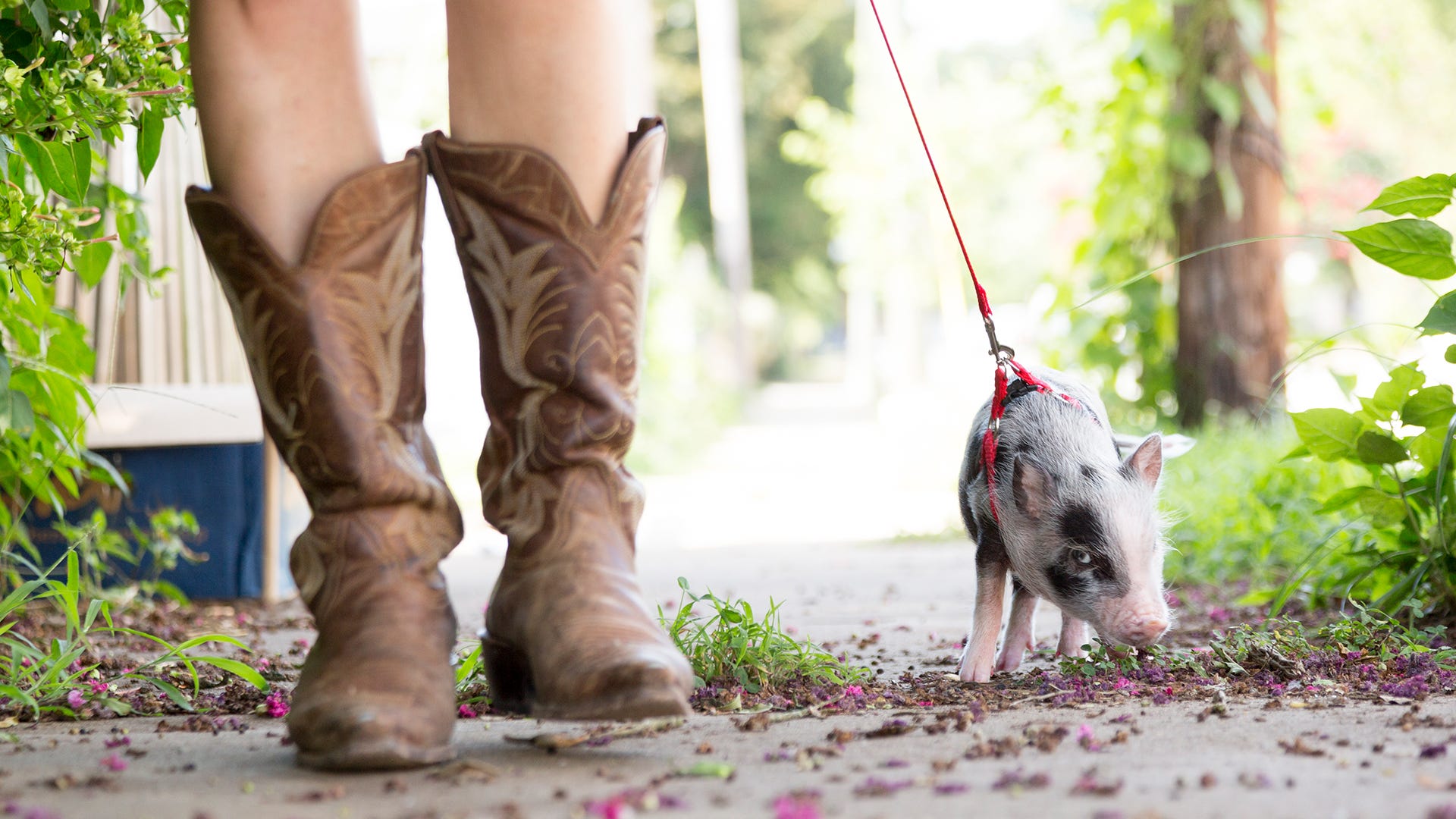
Keep Your Pet Pig Healthy
These animals are generally healthy, only requiring a vet visit for checkups, tusk and nail trims, or colds. Your local vet might not deal with pigs, so research around the area to check for a place to go. As soon as you can, it’s best to spay or neuter your pig as soon as possible. Males can develop a musky scent if not neutered, while females can develop uterine problems if not spayed.
Pigs require a particular diet and have to eat a specific kind of feed. You cannot feed table scraps to pigs because it can contain diseases that can spread to other livestock. When pigs get hungry, they scream for their food, which doesn’t sound exactly pleasant to others in the neighborhood.
For pigs to be healthy, they require exercise. Taking pigs on walks, letting them spend time outdoors, and providing a kiddie pool for cooldowns can all benefit the pig's health. A spacious yard, outdoor shelter, and fencing are also necessary outdoor accessories for a pet pig. Because they don’t have a heavy layer of fur, they can also get sunburnt, so providing mud or sunscreen while your pig is outside on a sunny day can help.
How Big Do Pigs Get?
In certain areas, zoning laws are in place for pigs. Some residential areas won't allow pigs, while others place a limit on the weight of the pig. One of the biggest misconceptions that people have about pigs before adopting them as pets are their sizes. Most pigs that are sold as pets are very young and small. But no matter how small they are as newborns, these animals can get big, weighing between 100 and 200 pounds.
Even when advertised as a ‘small’ breed, Teacup or micro pigs can be severely malnourished and are often the runts of the litter when trying to be sold – therefore misleading the reality of their size. When properly fed, these pigs can average up to 70 pounds or more. Pigs growing bigger than expected is a common reason people get rid of them as pets after a few years. They aren’t full grown until 3 to 6 years old.
Think Before You Commit
Before committing to getting a pet pig, you can try spending time with them at local shelters. The other big misconception when it comes to caring for pet pigs deal is their long lifespans. While people have the best intentions, sometimes after they adopt a pig, they surrender them (or worse, release them into the wild) because they aren’t really prepared to care for it. Living up to 20 years, these animals are a long-term commitment.
Be aware that dogs are natural predators to pigs, so they don’t get along very well. However, cats and pigs get along great. You can learn more about pigs and advice for fencing and habits here.
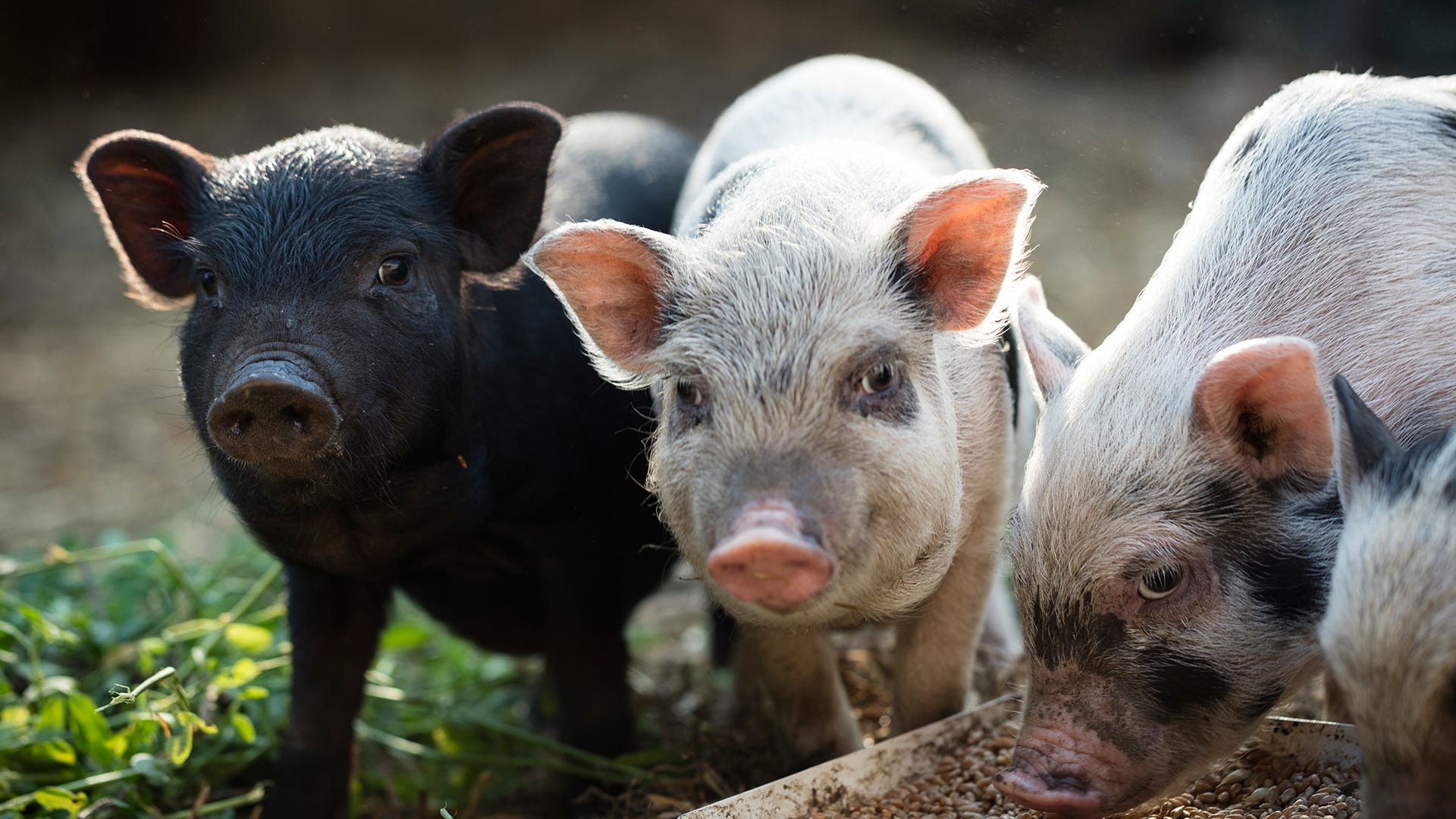
Learn More about Pigs
Guarantee that your pig is living a healthy life in a safe environment. By using Zareba® you can be assured that your animals are safely protected from predators and carefully contained. Check out our full website here. To keep up with our latest news and products, you can subscribe to our e-newsletter. Plus, you can get exclusive deals and tips delivered right to your email.

